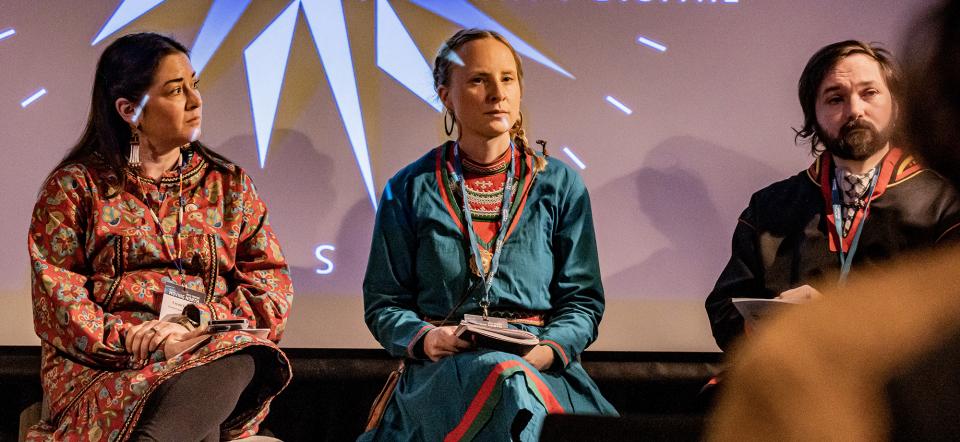That was one of the conclusions at the Arctic Frontiers event “Accountability, Communication and Respect: Establishing an ethical framework for involving indigenous peoples in Arctic Research” which NordForsk co-hosted with the Research Council of Norway, Embassy of Canada to Norway, Canadian International Arctic Centre and Greenland Research Council.
The event was moderated by Professor Torjer Andreas Olsen, from UiT The Arctic University of Norway, Tromsø. Panelists were Crystal Gail Fraser, University of Alberta, Canada, Mikkel Berg-Norlie, NIBR Institute of Oslo Metropolitan University, and Eva Marie Fjellheim, The Saami Council.
Research fatigue
One of the issues that was discussed, was so-called “research fatigue”. To describe it, one of the panellists referred to a humoristic saying claiming that a typical Saami family consists of a mother, a father, two children, and one social anthropologist.
The reality is that many representatives of indigenous peoples are burdened and overwhelmed by researchers that need to gather data. The risk is that this research fatigue will lead to increased reluctance to serve as sources of data. It may therefore be necessary for researchers to find ways of doing empirical studies that are less burdening for the indigenous peoples that are studied.
New call
Arne Flåøyen, the Director of NordForsk says that NordForsk is trying to develop a call on Arctic research in collaboration with national funders of research in the Nordics, Canada and the USA.
“We will try to be better at implementing indigenous perspectives both in the development of the call and in the research that will be funded”, Flåøyen says.


